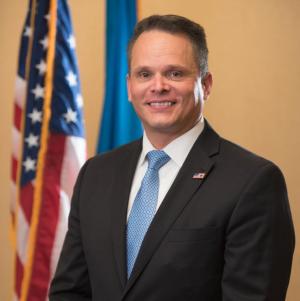Delawareans who purchase health insurance on the Affordable Care Act Marketplace are witnessing politically motivated sabotage by our president. By terminating essential cost-sharing payments for plans offered through the ACA, President Trump has killed the promise for affordable health insurance for millions of Americans. This, and other efforts to dismantle the foundation of the Affordable Care Act, have further imperiled the goal to reduce the number of Americans without health insurance coverage.
While the ACA is for too many Americans anything but affordable, it has realized many of the goals set forth in the law. Prior to the act, approximately 24 million Americans, and more than 27,000 Delawareans, were uninsured. Those who were previously uninsured are now receiving health insurance coverage. People with pre-existing conditions will be covered as well as children under the age of 26, who will be able to stay on their parents' health plan.
For over six years, Congress has voted repeatedly to repeal and replace the ACA, knowing full well the president would not sign the bill. It's a little-known fact that Congress failed to deliver on their obligation to pay out on risk corridor payments that would have offset costs and lowered premiums. And now the president is eliminating the cost-sharing reductions, which are the discounts that lower the amount consumers pay for deductibles, copayments, and coinsurance. The president and Congress misused the term "bailout" when talking about these payments. No one was being bailed out.
These payments were the basic architecture that would make the ACA work. In addition, the president has stated time and again that he has no intention of enforcing the individual mandate, which requires everyone to have health insurance. This is another key structural component of the ACA essential to its success. The lack of enforcement will mean fewer people will be in the pool of those with insurance, thus raising the risk and cost of those who are insured.
This past summer, the Republican-controlled Congress attempted to push through measures that would have cost approximately 24 million Americans their insurance coverage. In Delaware, an additional 58,000 people would be left uninsured, which would have led to increased uncompensated hospital emergency department costs in the state by 34 percent. In addition, an estimated 94 lives would be lost from opioid overdose as a direct result of the loss of Medicaid-covered naloxone. All of these bills were not found cost effective by the Congressional Budget Office, an independent scoring agency. All would have reversed the progress realized under the ACA. No viable solutions were offered.
Any solution must repair the ACA's foundation: (1) the federal government's funding of cost-sharing reductions, and (2) the enforcement of the individual mandate requiring individuals to purchase health insurance. Cost-sharing reductions from the federal government to insurance companies help defray the out-of-pocket health plan costs for low-income enrollees.
The president's actions are not solutions. He and his administration continue to undermine a program that deserves to be fixed, not destroyed. The president and his administration have set up further roadblocks by slashing funding for ACA navigators, shortening the enrollment period, and scheduling signup website maintenance during enrollment on Sundays.
These decisions affect all ACA consumers. The future of affordable healthcare now hinges on what Congress will or will not do.
If Congress fails to fund cost-sharing reductions, insurers will leave the marketplace, and premiums for 2019 will be even higher. Consumers who are not subsidized through CSRs will also foot the bill for those higher premiums. In the end, this could potentially cause consumers to choose not to purchase health insurance because of higher costs, but still use medical services. This is an expense that all consumers of insurance ultimately pay and one that the ACA has helped to curb.
Throughout his campaign, President Trump said he would have a solution to the ACA’s problems on his desk the first day he took office. He did not. Since taking office, he has said that he wants everyone to have health insurance coverage, but none of his actions demonstrate this. It is widely accepted among regulators, healthcare professionals, insurance companies and consumer advocates, that cost-sharing reductions must be fully funded and the mandate enforced.
A commitment by Congress to fund the cost-sharing reductions and enforce the individual mandate will usher in an era of stability for the ACA Marketplace. If both of these commitments are fulfilled, consumers will see significantly lower rates. This should also bring competition into the marketplace as well.
Since becoming insurance commissioner, I have met with several health insurance companies, and held discussions with them about coming to Delaware and writing coverage on the ACA Exchange. While there is an interest, companies have made it clear that they first need to see stability in the ACA Marketplace. As insurance commissioner, my job is to look out for the best interests of all Delawareans. I will continue to work diligently with our congressional delegation as well as within our state to ensure the best possible outcome with regard to the ACA and its impact on our consumers.
Trinidad Navarro is the insurance commissioner for the state of Delaware.





















































